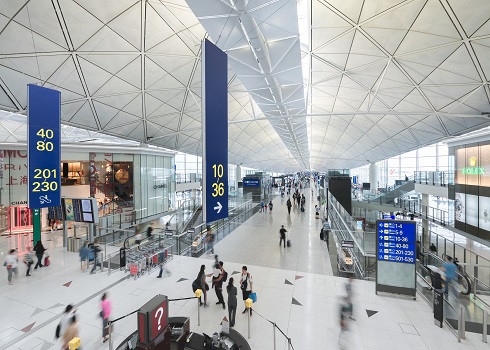Airports Council International World estimates a 24% drop in Asia Pacific passenger traffic in Q1 2020

The Airports Council International World noted that Asia-Pacific is suffering the highest impact from the COVID-19 outbreak, with passenger traffic falling and a decline in aeronautical revenue
The Airports Council International (ACI) World estimates that Asia-Pacific’s passenger traffic will fall by 24% in the first quarter of 2020, as compared to forecasted traffic levels without COVID-19.
The Council noted that Asia-Pacific is suffering the highest impact, with mainland China, Hong Kong SAR and South Korea remaining “at the center of the effects, with sizeable losses in traffic volume.” It also warned that the prolonged duration of COVID-19 outbreak will significantly set back the region’s airports from previous forecasted growth, as such, it urged regulators and governments to implement well-defined adjustments and relief measures to suit their local contexts.
Against the backdrop of sharp declines in passenger traffic and throughput, airports’ are also seeing a decline in aeronautical and non-aeronautical revenues. The ACI World Airport Traffic Forecasts 2019–2040 predicts US$12.4 billion revenue for the first quarter in the Asia-Pacific region in the "business as usual" scenario. However, COVID-19 is projected to cause a revenue loss of US$3 billion.
In a press release, the ACI said the shortfall in the number of passengers and flight cancellations result in reduced revenues from airport charges such as landing and parking charges paid by airlines, as well as passenger service and security charges paid by passengers. Even as airports see a decline in aeronautical revenue, the cost base for airport operations remain the same as airports cannot close or relocate their terminals during the outbreak. The ACI also noted that COVID-19 is impacting Chinese passengers, which are the world’s largest and highest spending outbound travel group, thus creating a wider, worldwide effect on airports.
Commenting on the situation, Stefano Baronci, Director General of ACI Asia-Pacific said: “Unlike airlines, who can choose to cancel flights or relocate their aircraft to other markets to reduce operating costs, airport operators manage immovable assets that cannot be closed down. They are faced with immediate cash flow pressures with limited ability to reduce fixed costs and few resources to fund capacity expansion efforts for longer-term future growth.”
“For privately-held airports, the situation is even worse as they do not benefit from relief measure but are obliged to continue paying concession fees to governments.”
“The severity of the current situation requires a close cooperation between airport operators and policy stakeholders to identify options to tackle the crisis. For continued regional prosperity, as all the long-term forecasts suggest, we have to consider the overall sustainability of the sector, starting with the shortage of airport capacity. Asia already manages more than 50% of the super-congested airports in the world and will require to build the large majority of greenfield airports globally. Further, it is in the interest of the airports to explore at local level with their main partners relief measures to face the current challenges and recovery plans to incentivize the return to a normalized market. The blanket application of proposals to reduce airport charges or to freeze the application of the 80/20 rule on airport slots globally should not be supported without passing an economic feasibility test and justification by objective evidence.”
Under current slot allocation rules, airlines have to use a minimum of 80% of their allocated slots under normal operations at an airport to keep them. To help airlines, the International Air Transport Association recently made a proposal for a global suspension of the 80/20 usage to give airlines the freedom to cancel flights to or from congested airports not necessarily linked to the COVID-19 outbreak, jeopardising the ability for countries to stay connected with the world, which in turn will have knock-on effects on their economies.
In response to this proposal, Baronci said: “We are sympathetic with the airlines’ needs to avoid flying empty airplanes simply to retain airport slots. But this should not jeopardise the connectivity of passengers and distort the competitive field. ACI Asia-Pacific favours an evidence-based market-by-market review which evaluates rates of infection, load and scheduled bookings. While we prefer local measures, in the event of a global alleviation package, airports, airlines and slot coordinators should explore the feasibility of a relaxation of the 80/20 rule to a lower threshold or a calculation of the historic rights for airlines based on a shorter period through their respective associations.”









.jpg?&resize.width=322&resize.height=483)
